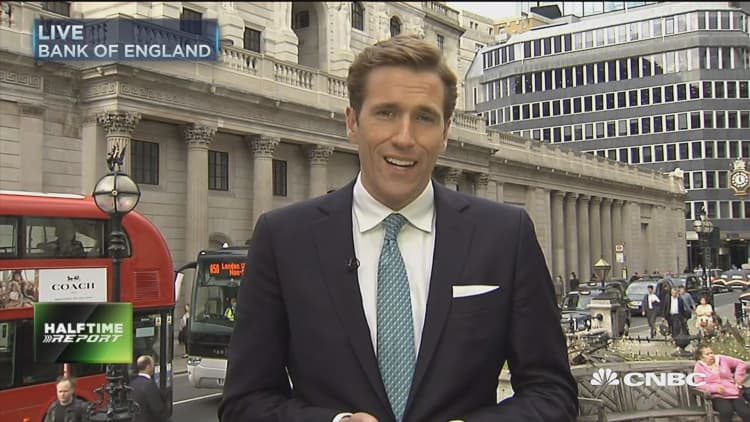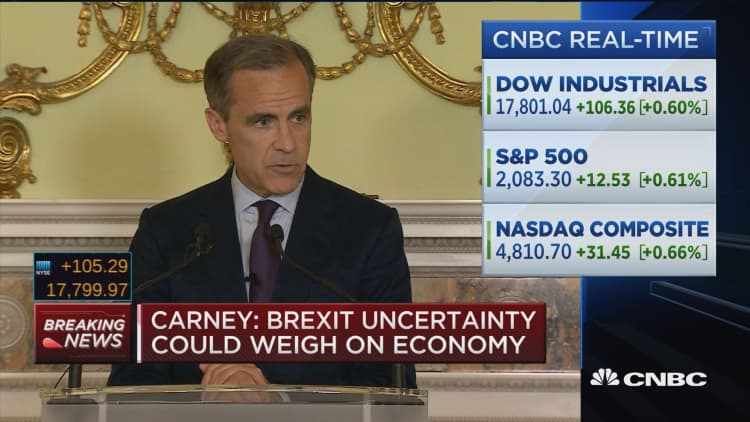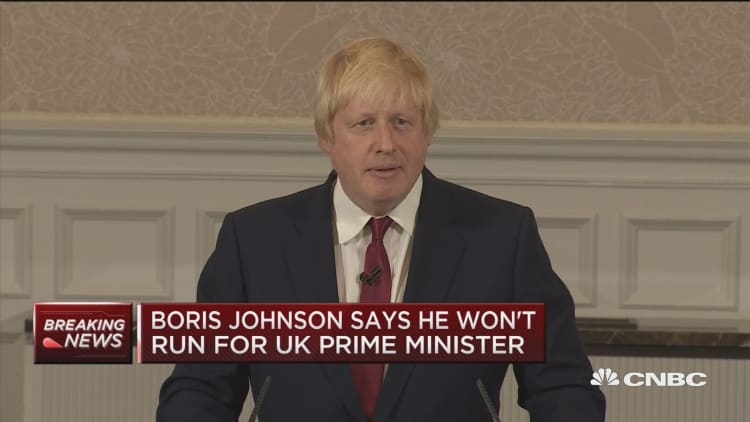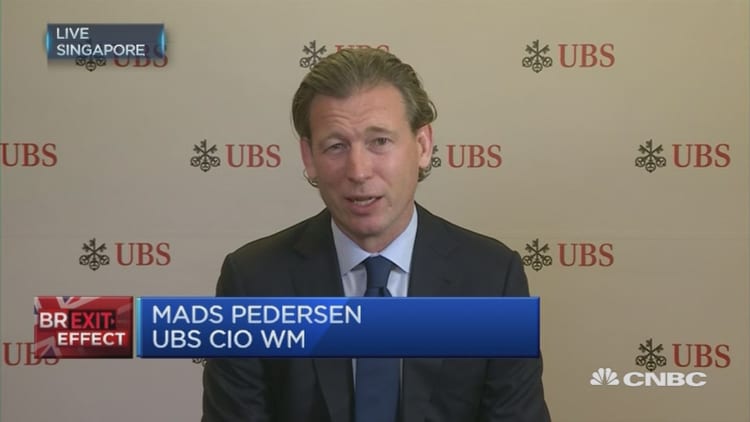


Further stimulus measures may soon be needed for the U.K. following the country's vote to leave the European Union, Bank of England Governor Mark Carney warned Thursday.
He forecast a "material slowing" in economic growth as a result of last week's referendum, whose outcome stunned financial markets.
"The economic outlook has deteriorated and some monetary policy easing will likely be required over the summer," Carney said in a speech at the Bank of England in London.
The bank's Monetary Policy Committee will make an initial assessment of the situation on July 14, before publishing updated growth and inflation forecasts in its August "Inflation report."
"In August, we will also discuss further the range of instruments at our disposal," Carney said, laying the groundwork for possible policy changes.
European stock indexes
European markets
In its most recent forecast in May, the bank forecast the U.K. economic growth would slow to 2 percent in 2016, partly due to increased uncertainty wrought by run-up to the Brexit referendum.
On Thursday, Carney said the bank would extend its indexed long-term repo operations on a weekly basis until the end of September, to help banks manage liquidity amid "heightened uncertainty."
Carney added on Thursday that the Bank of England would also provide more than £250 billion ($333 billion) of additional funds to support financial markets if necessary.
"I want to re-emphasize that the bank has taken all the necessary steps to prepare for these events. And we will not hesitate to take any additional measures required to meet our responsibilities as the United Kingdom moves forward," Carney said.
Banks were among the worst-hit stocks in the market rout that followed the vote on Friday and Monday.
Traders' poll
In his speech on Thursday, Carney attempted to reassure the market regarding the U.K. financial sector.
"The capital requirements of our largest banks (are) now 10 times higher than before the crisis. Moreover, the bank has stress tested our major banks and building socieities against scenarios far more severe than the country currently faces," he said.
However, the Brexit vote has "more than totally unwound" the falloff in U.K. policy uncertainty since the global financial crisis of 2007-08, he added. This, coupled with tighter financial conditions, might mean U.K. households and firms delay spending and could also cause lower labor demand, leading to higher unemployment.
"All this uncertainty has contributed to a form of economic post-traumatic stress disorder among households and businesses, as well as in financial markets," Carney said.
The U.K. must clarify its future trading arrangements, its openness to migration and regulatory framework to help abate the uncertainty, he added.
The vote by the U.K. public to quit the European Union (EU) last week rocked markets and left the country fragile politically and, some analysts fear, economically. Prime Minister David Cameron, who supported the "remain" campaign, has pledged to quit as leader by October.

Thursday saw the announcement of who would — and wouldn't — run to succeed Cameron. Sterling briefly jumped when Boris Johnson, the colorful former Mayor of London and leader in the "leave" campaign, said he would not compete.
Carney attracted criticism for violating the bank's political independence in the run-up to the vote for warning about the possible risks to the economy from a Brexit. Some of these critics were Conservative politicians who campaigned for leave — whom carney may have to work closely with in the result of a possible government reshuffle.
"Whatever the shape of the government .... this (the BOE) is a professional technocratic institution and we will continue to do our job," he said Thursday.
On Friday morning, after the results of the vote were known, Carney sought to calm markets with a pledge to provide an extra £250 billion ($336 billion) in liquidity if necessary. He insisted U.K. banks were well-funded, as their share prices tanked.
S&P Global Ratings and Fitch Ratings downgraded the U.K.'s credit rating this week in the wake of the Brexit vote and Goldman Sachs has warned the country may slip into recession by the start of 2017.
The next question is whether the Bank of England will loosen its already monetary accommodative policy in the wake of the vote. Economists say the bank may cut interest rates to 0.25 percent or 0.00 percent, or even reintroduce quantitative easing.

"We think that if they lower rates a bit further from here, go towards zero, and they do a little bit more QE that might be a helpful recipe for stabilization for the coming months. But helicopter money is probably too early," Mads Pederson, CIO of UBS Wealth Management, told CNBC early on Thursday.

